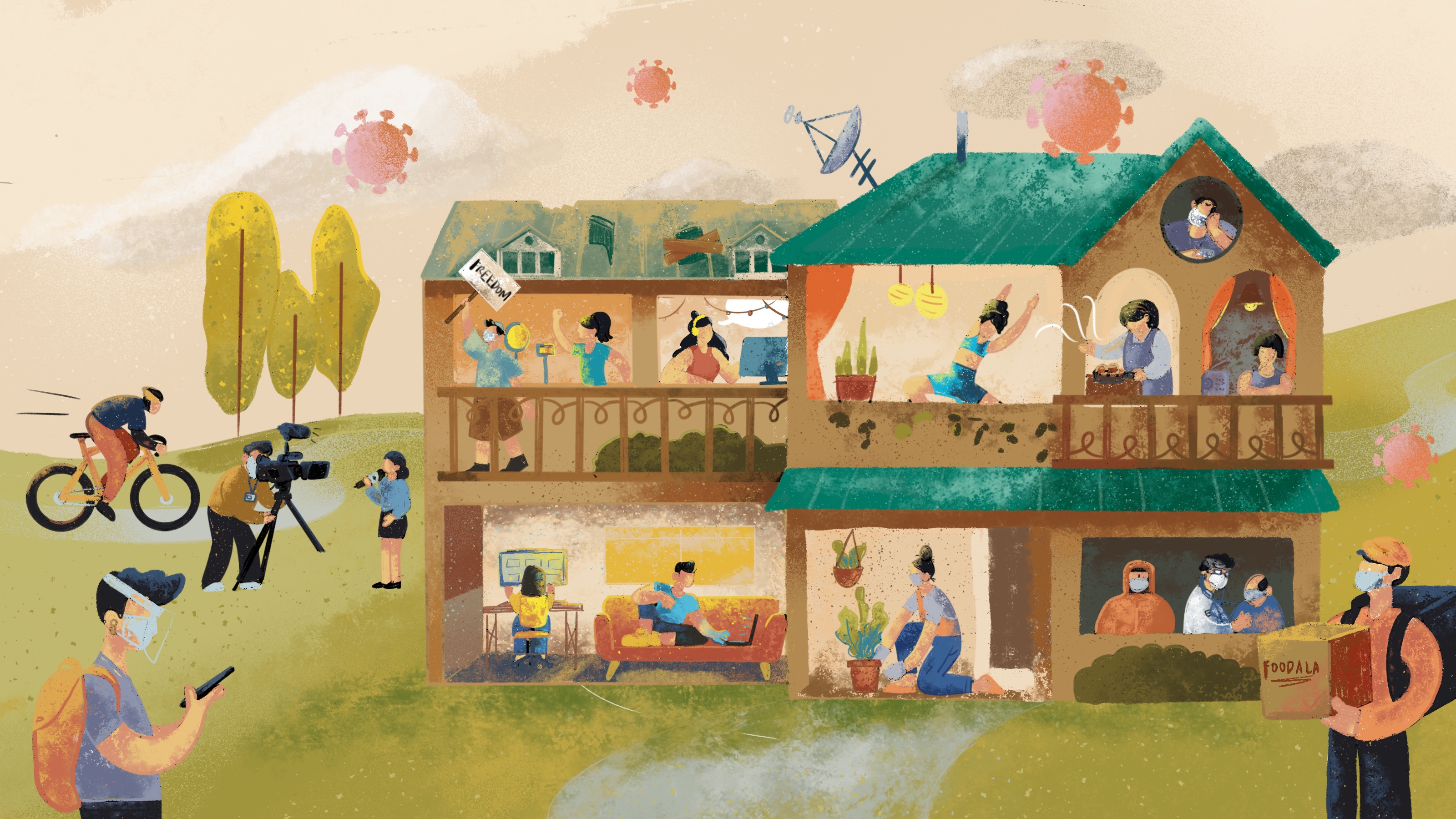Everywhere you look, something has changed. Our homes are different now. It’s either every member is complete weathering the pandemic together or a member or two––or more––are missing, never to be seen again for Sunday brunch or any special occasion, because the virus has ruthlessly claimed their lives.
In a strange and cruel twist of fate, even the halogens in the entertainment and cultural scenes are also switched off if not dimmed. Variety shows without live audience are eerie no matter the punchlines thrown in the air. (Eerier is an entire TV station shut down because of politics or the politicians’ lack of understating and compassion in the time of the pandemic.) The backstage ghosts, just a few of them, maybe all of them, come centerstage to fill the empty theaters, the curtains undrawn in total darkness.
The unseen enemy is so powerful that in a blink of an eye the lifestyle of people is interrupted. Sidelined. Sideswiped. Stranded.
There is a hankering for food all the more for the marginalized. They are always, always affected. While there are restaurants that closed completely or modified operations, the pandemic created, too, overnight kitchen sensations around the country.
Businesses wrestle with the economic consequences from the pandemic. For some SMEs, the virus is a kiss of death that has not waited for the vaccine to be discovered. People lost their jobs, leaving their families hungry and their fate uncertain. For many, however, the health crisis is a stark lesson in keeping the faith, keeping at bay as they struggle to survive, one day or one business strategy at a time.
In the country’s war against the concealed yet lethal enemy, people seek refuge in technology and innovations as they decoded an armada of digital armament to keep them busy and safe from the virus. Contract tracing technology, for one, also helps in saving lives.
Beyond the curve, the pandemic also revealed the country’s privation of a comprehensive healthcare system. We salivate in awe how some neighboring countries have licked the virus in time. It is a good thing, nonetheless, that we have able and dedicated medical frontliners helping the populace slay the enemy. They, too, are almost a dying breed because of their face-to-face encounter with infected people.
The virus has changed us. The education sector grapples with distance learning, an unfamiliar and unmapped domain. The digital classroom is a reality albeit many students who cannot afford technology are still left in the dark how on earth they will pass or fail in the new setup. But the young ones and their teachers will find a way––perhaps in blended learning. Perhaps in faith.
News and publishing, though a force to reckon with in the time of a health crisis, also has its demons. In a society that relies heavily on facts to assuage them of their fears, the journalists in the newsroom and in the field have to fight between filtering out the unsavory fake news and keeping each body strong, still, safe and sane. But the news has to be delivered whether the pressroom is under attack by the virus or the people in power. They adapt, like they always do. It’s in their nature.
At the end of the day, people go home where they feel safest. It is the sanctuary where they celebrate the most meaningful victory or miracle of still staying alive or honor in silence or in tears the loved ones, even acquaintances, who perished in the battle. At home, in the serenity of one’s heart, one rekindles faith over fear, is comforted by little acts of kindness over experiences of avarice from those in power. In between the blurs and worries of the day is a stubborn hope that will not surrender.
In between life and death, in between triumphs and travails, in between changes––we will prevail. Resilience is the unseen force that proves to be more potent than the unseen enemy.









